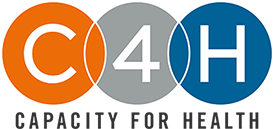Healthcare organizations live change every day. Change management is an imperative in every campaign, every mission, and every goal.
Many healthcare organizations, as well as nonprofits that operate in the health sector, are mission-driven to affect change in the populations they serve, so change management techniques apply both internally to staff processes and externally to the people they serve.
Change management is, by nature, designed to facilitate innovation and foster new ways of thinking and behaving. Political winds foster funding changes and clinical research yields new best practices for care delivery models. In public and private healthcare delivery, the constant thread of change management is woven throughout our practice regardless of the size of our organization or the mission we hope to achieve.
Why is it, then, that organizational efforts at change management so often fail?
Challenges of Change Management in Healthcare
The Harvard Business Review suggests most change management efforts fail, take too long, and simply don’t last. They suggest that change management in healthcare is harder than most other industries because “Clinical and administrative staff often view their work as a vocation as much as a profession, and they are historically suspicious of senior administrators and resistant to strategic agendas.” This is one way that change management can fail. When employees feel strong ownership in existing methodologies and drag their heels, it can slow and even kill the initiative for the entire organization. Even if the effort appears to work initially, it will fail long-term without stakeholder buy-in.
Change management in healthcare organizations can fail, too, because complex infrastructures can stymie communication across a large, dispersed group. This is particularly true when change comes from the top and is expected to funnel downward to employees on the front lines of a service culture.
Change management in the healthcare industry is also challenging when organizations fail to plan systematically for workflow disruptions, long-term staff engagement, task delegation, preparing for inevitable setbacks, and setting benchmarks to track progress over time.
But the benefits of change management include staff engagement, better service delivery, and improved productivity.
What models are available to ensure your change management efforts will succeed?
One Model for Change Management in Healthcare
There are many change management processes available. One method is Kotter’s 8-steps for leading change. The steps include:
- Identifying the “why” behind the change and communicate it.
- Engage core stakeholders at every level.
- Develop a roadmap for the change initiative.
- Gather staff to put the plan into action.
- Remove obstacles and adapt as they occur.
- Initiate changes and track progress.
- Align any interrelated structures with the new vision.
- Ensure that change is supported long-term.
Stakeholder engagement is built into every part of Kotter’s model. It’s one area that is crucial to any change management initiative. If we know it’s so important, why is staff buy-in so often missed?
Why Staff Buy-In Is So Important
Change management can make or break an organization. But far too often, healthcare organizations fail to engage the staffers on the front lines. Passive and active resistance from these teams can stymie our best efforts to affect change long-term.
Transforming change management in healthcare from a top-down declaration to a process of engaging staff at every level can create a community of problem solvers to achieve a shared goal. As a result, organizational culture improves and the chance of a successful change management initiative is higher.
Could An Outside Resource Help?
Change management in healthcare organizations is a delicate balancing act between worker engagement and management strategy. Because these efforts are labor-intensive, it is often advantageous to have the assistance of external expertise to ensure the success of your change management initiative.
C4H helps healthcare organizations and health-focused nonprofits to optimize their efforts and better serve their community. Contact us to discuss how we can facilitate change in your organization.




